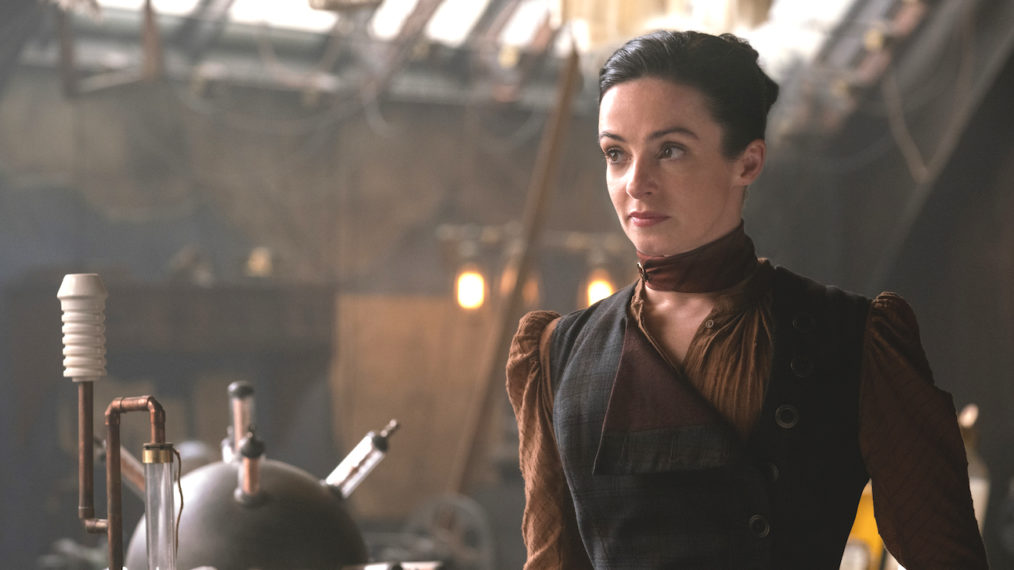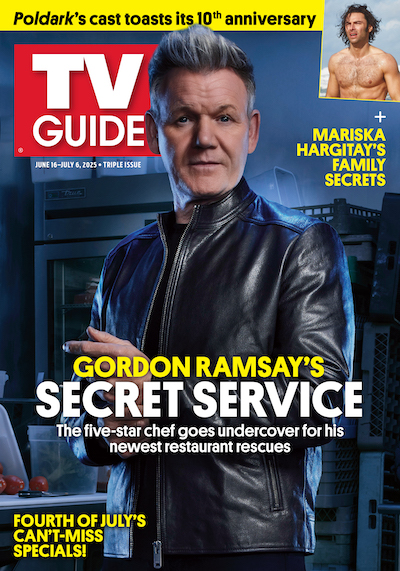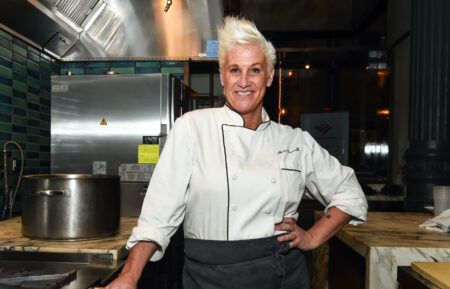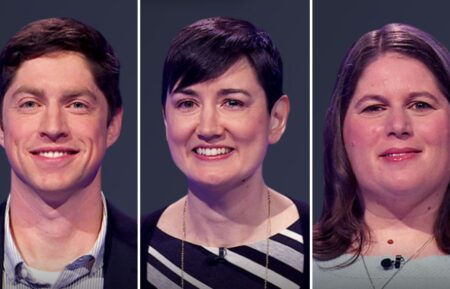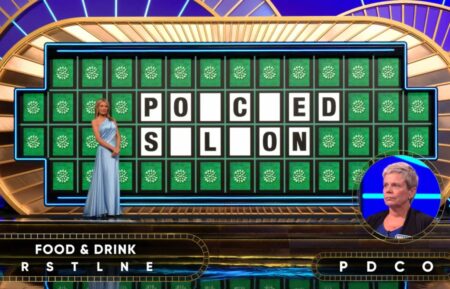Review: ‘The Nevers’ Part 1 Finale Is a Messy Disappointment
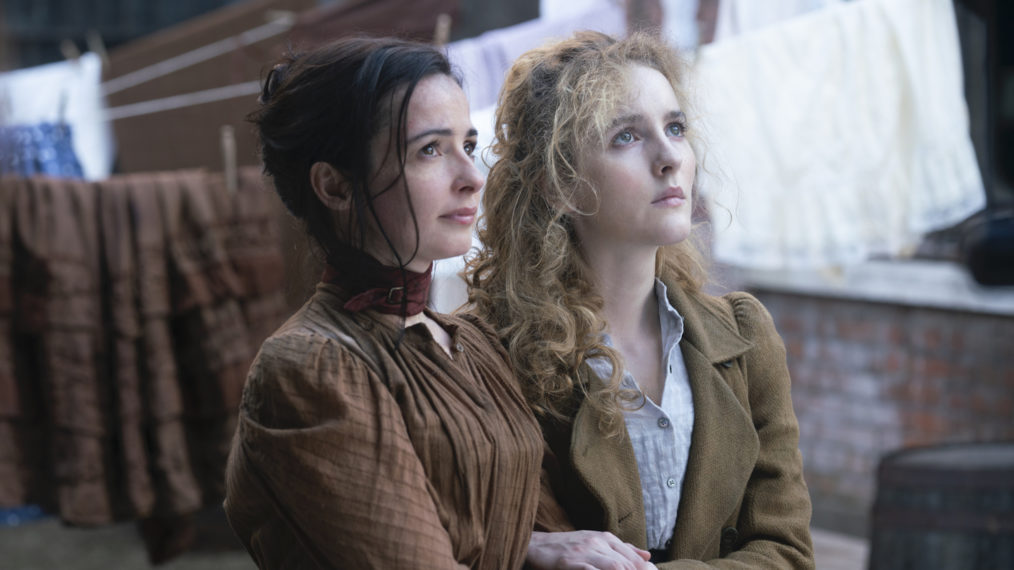
Review
HBO’s fantasy series The Nevers had a very strong beginning. Unfortunately, the Part 1 finale was confusing and capped off a sense of things falling apart that started in the fifth episode. No wonder HBO only sent out press screeners for the first four episodes.
Initially, The Nevers seemed like it had a very appealing premise for fantasy lovers. A period show where women, and some men, in late 1800s London acquire mysterious powers, and are feared, and targeted, by the rest of society, is perfect fodder for prestige TV. We became invested fairly quickly in Mrs. Amalia True’s (Laura Donnelly) mission to create a safe haven for the Touched (the aforementioned people with powers) in a local orphanage, were kept entertained by great action scenes, and were dazzled by superb special effects, sets, and costumes. So where did it all go wrong? Well, perhaps with trying to do too much.
The show’s strength lies in using the Touched to interrogate how society treats outsiders, as evidenced by Lord Massen’s (Pip Torrens) war against them. These people have powers, and regardless of why they do, the world around them has to deal with that. Where the show gets into trouble is when it attempts to unfold the mythology behind where these powers came from. That’s what last night’s finale devoted itself to: Amalia’s origin story, and what that thing in the egg actually is.
The episode begins with a war zone in some distant future, where a group of fighters called the Planetary Defense Coalition are attempting to free a giant alien who they think could help their dying planet. They toss around jargon that the audience can’t understand, and it generally feels like another show entirely. Like that Stranger Things season 2 episode that everyone hated where Eleven (Millie Bobby Brown) goes to Chicago, the change of environment takes viewers out of the story.
As for who, and what, is Amalia True? It’s just as convoluted. She’s not the person who we saw jump into the river in episode 1, but rather someone from that apocalyptic future who got put in the suicidal Mrs. True’s body by the alien, which is called a Galanthi, apparently. What the series fails to understand, is that some simplicity would have gone a long way here. If the Touched acquired their powers from a vague cosmic event (and not an alien from the future) and Amalia was a person who tried to take her own life but now found a new purpose in guiding others who were changed as she was, that would’ve been more than enough to fuel the story. What’s more, the real Mrs. True’s tragic history is a very human one that we can understand, while this soldier from the future is much harder to connect with. The penultimate episode, “Hanged,” ended with the streets of London flooded by an anti-Touched riot, started by Maladie (Amy Manson), and helped along by Lord Massen, leaving us fearful of what might become of the orphanage. This seems like more than enough meaty story to dig into without the futuristic subplot, which is more a distraction at this point than anything else.
The riot feels like what the series has been building toward this whole time. It’s the tipping point where all of the tensions between the Touched and London society boils over. And what happens right when the show is at that climax? It diverts into the future. The finale doesn’t deal with the aftermath of the riot. It barely even shows Amalia’s mission to save the Galanthi. Instead, the episode does away with all of that momentum and is structured as a massive poorly explained info dump on how Amalia got here. Even with all of that, it doesn’t answer many questions, like what are these aliens, and why do Amalia and the PDC think that they can save the planet?
Indeed, this is a show where a lot of the subtext could benefit from being made text. For example, the term Galanthi is introduced in episode 5 without any sort of definition, so if it took you a while to figure out what all of the characters were referring to, don’t feel bad, you didn’t miss anything. The show simply neglected to offer an explanation. The same could be said for the reveal that a Maladie devotee named Clara (Sylvie Briggs), a minor character who most viewers probably don’t remember, is the one who actually got hanged, and not Maladie herself. I was half waiting for a Monk-inspired “here’s what happened” monologue from Inspector Mundi (Ben Chaplin) about it, but there is none.
I’ve been singing this series’ praises all season long. From the moment that the severe Amalia and optimistic Penance (Ann Skelly) – by far the show’s best character – arrive with their witty banter to rescue Myrtle (Viola Prettejohn), and kick butt against mysterious mercenaries trying kidnap her, I was hooked. But, the repeated attempts to tell this alien/futuristic backstory keeps derailing what is otherwise an excellent show. Of course, Joss Whedon (The Avengers, Buffy the Vampire Slayer) helmed the season up until this point, and hereafter Philippa Goslett will be taking over as showrunner now that Whedon has stepped down (amid controversy surrounding the filmmaker), so she may very well have a different approach to how the narrative should be handled. But for now, I think we have to assume that the series is going to continue with what has already been set up. The result is that the show is being pulled in two different directions: The orphanage and the 19th century-set issues that surround it, and the alien from the future. World building is hard enough if you don’t have to set up two different ones within a single show.
Watching the Touched residents of the orphanage take care of each other (that scene where everyone works together to interpret Myrtle’s translation of Mary’s song is just beautiful) as they deal with outside threats, like a serial killer that gives them a bad name, a playboy lord (James Norton) who wants to exploit them, and a society that wants to burn them, is fascinating. If only we could agree to retcon the wayward sci-fi part of the story, HBO would have the best new prestige fantasy series on television. As it stands, it’s likely to only get worse from here.
From TV Guide Magazine
Behind the Scenes With Gordon Ramsay: 20 Years of Cooking Up TV Hits
The celebrity chef reflects on redefining culinary television and his fiery journey Hell’s Kitchen to Secret Service. Read the story now on TV Insider.

